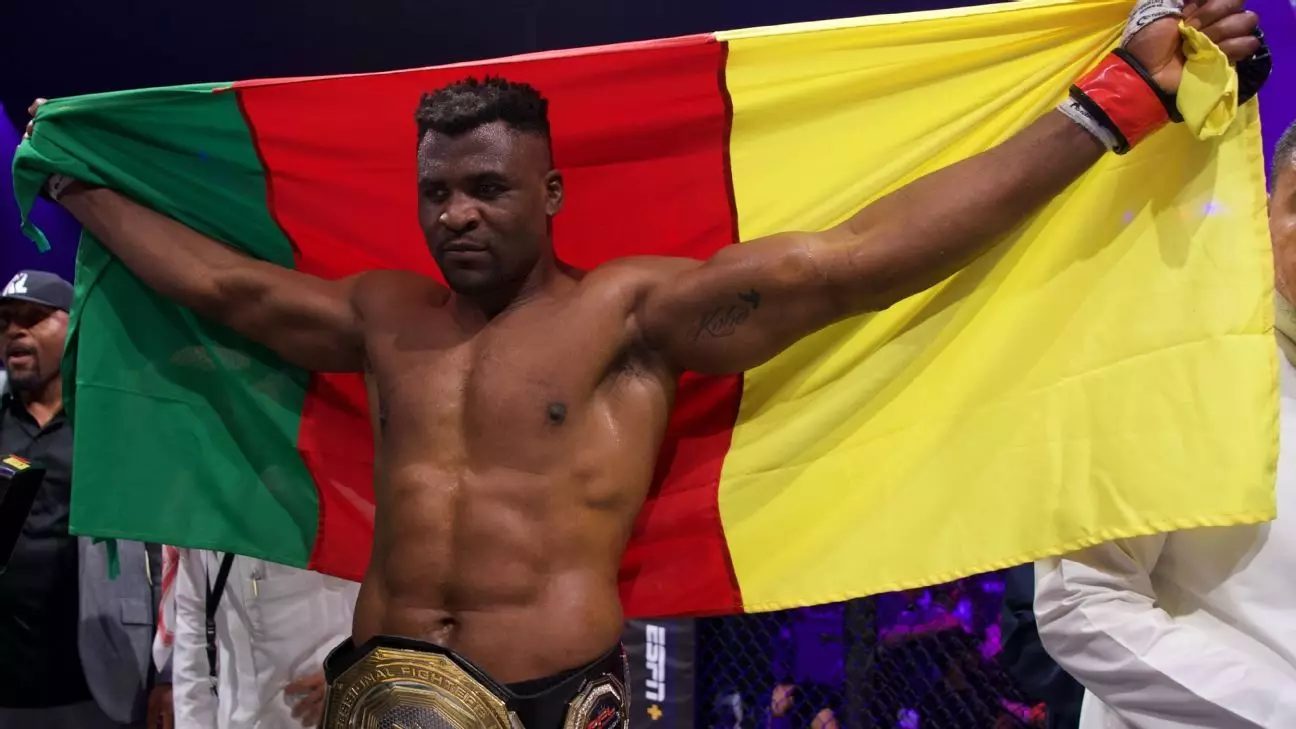Francis Ngannou, a name synonymous with strength in the combat sports world, has recently found himself entwined in a sorrowful narrative following a devastating incident in Cameroon. Reports indicate that Ngannou, while riding his motorcycle during Easter weekend, struck a young woman, resulting in her hospitalization and subsequent demise. The gravity of this situation cannot be overstated; a life has been lost, and a family irrevocably changed. Such an event raises crucial conversations about accountability, compassion, and the consequences of our actions.
Ngannou, now 38, has issued a statement through TMZ Sports, expressing his deep condolences and affirming his commitment to support the victim’s family. “From the very beginning, I have been by the family’s side,” he stated, echoing sentiments of sorrow and care. His words reveal a man grappling with the weight of his actions, yet they also suggest an awareness of the ongoing pain experienced by those left behind in the wake of tragedy.
Beyond the Ring: The Weight of Responsibility
While Ngannou’s intentions appear genuine, one must consider the complexities of fame and responsibility. As a former UFC heavyweight champion, he has wielded power—not just in the octagon but as a public figure. Every action he takes reverberates far beyond his immediate environment, impacting fans, aspiring athletes, and the community at large. It raises the question: how prepared are athletes for the profound influence they have off the mat or ring?
The incident highlights a stark reality: athletes are not merely performers; they are human beings subject to the same societal rules and moral obligations. They are expected to not only entertain but also embody the virtues of discipline and integrity. Amidst extenuating circumstances, such tragic incidents prompt us to reflect on the unyielding nature of reality—we are all interconnected by the actions we take, sometimes with irreversible consequences.
The Impact of Grief on Performance
Ngannou’s journey has been marked by personal tragedy, including the heart-wrenching loss of his infant son, Kobe. The emotional toll of this cannot be underestimated, as grief can severely impact professional performance and mental health. Many might question whether such afflictions cloud judgment or influence behavior, especially when juxtaposed with high-pressure environments typical of competitive sports.
The intersection of personal grief and professional duty creates a complex tapestry that few can navigate unscathed. While his recent transition from MMA to professional boxing has seen him face monumental challenges, it also demands an examination of how personal loss influences psychological resilience. Ngannou’s narrative serves not only as one of triumph and heartbreak but as a reminder of the human experience that informs the lives of athletes.
A Call to Compassionate Vigilance
As the investigation into the incident unfolds, we must approach Ngannou’s journey with compassionate vigilance. While he must grapple with the reality of what has transpired, we, as a society, should foster a dialogue that emphasizes both accountability and empathy. The loss of a life is tragic—not just for the victim’s family but for the broader community that feels the ripples of such incidents.
Ngannou’s story is a clear reminder that with great power comes immense responsibility. The legacy he wishes to leave behind may well hinge upon how he navigates this significant and painful chapter in his life. His statement indicates a desire to support the grieving family, but the depth of this tragedy calls for ongoing action, reflection, and understanding beyond mere words.


Leave a Reply